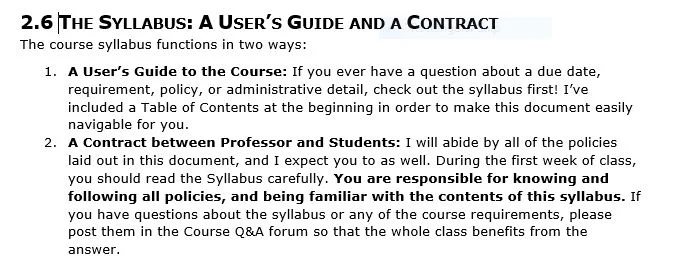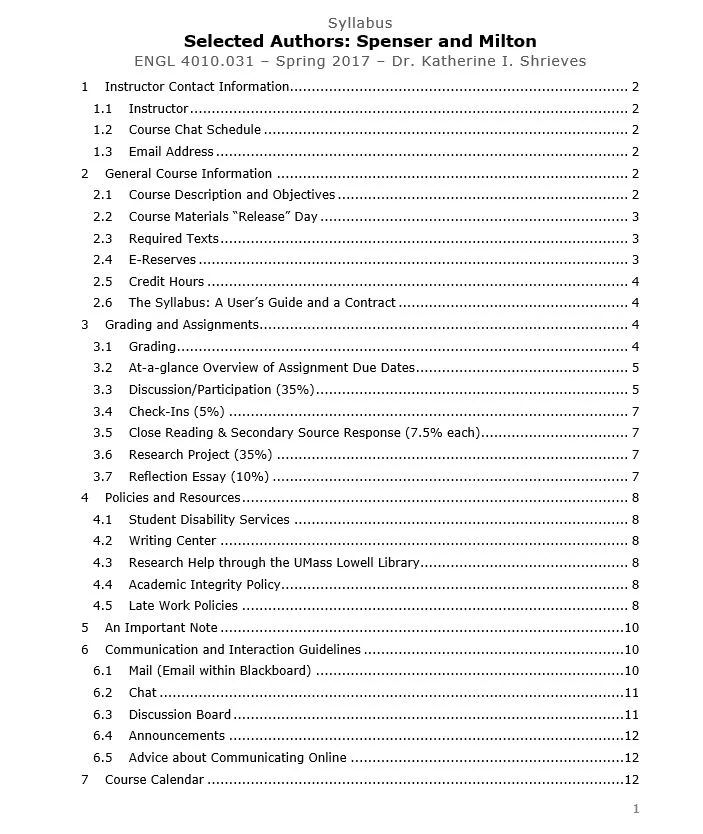What I truly want to foster in my discussion forums above all is conversation. Portfolio grading is an important part of creating that conversational atmosphere. Students feel more empowered to experiment with ideas and approaches when every sentence isn’t being assessed. Moreover, portfolio grading encourages students to take ownership of their own participation.
All in instructional design
How to Use Student-Created Rubrics for Participation Grades
The biggest philosophical benefit of a student-created participation rubric is that it gives students a voice in setting the criteria on which they are evaluated. With standards that are generated by the group rather than imposed from above by the teacher, students may feel more invested in the class. In this post, see step-by-step examples for how to implement student-created participation rubrics.
Review of a Thought-Provoking Podcast Episode about Online Teaching
Although it came out in December 2017, I only recently discovered an episode of the Teach Better podcast devoted to online learning: “Teaching Online with Doug, Edward, and Laura Gibbs.” This episode is worthwhile listening for anyone who teaches online or is considering branching into the world of online teaching. Since my bread-and-butter teaching is online, I couldn’t resist the opportunity to respond to Doug, Edward, and Laura’s ideas.
The Late-and-Missing Work Conundrum, Part 3: Policy Solutions
In the third and final part of this essay series about the teaching challenge of late-and-missing student work, I summarize my philosophy and describe my current policy approach.
The Late-and-Missing Work Conundrum, Part 2: What’s Wrong with Traditional Approaches?
In the first part of my essay series on coping with late-and-missing student work, I outlined what I see as the problem with typical policies that count missing assignments as a zero and stringently penalize late work. In the second part, I respond to the typical justification of a late-and-missing work policy and conclude with my own philosophy.
The Late-and-Missing Work Conundrum, Part 1: What’s the Problem?
How should teachers in online classes deal with late or missing work? Is it possible to craft late-and-missing-work policies that are fair and consistent, rewarding on-time performance while encouraging students like Jane to get back on track? These questions have consistently been some of my biggest challenges as an instructor, and in this essay series, I’ll share the philosophy and policies that I’ve developed through my years as an online educator.
Getting it “Just Right”: Workload Management for Students and Instructors in Online Discussion Forums
One challenge for discussion forums in online classes is creating a lively, intellectually-rich community while also keeping the workload manageable for both students and the instructor. This essay provides some tips for accomplishing that difficult balance.
Screencasts for Online Learning, Part 1: Why Make Instructional Videos?
When I first started teaching online, I provided weekly, written “lecture notes” for my students. Now, however, I’m moving increasingly toward screencasts. In this two-part series, I talk about why screencasts are a good choice for online teaching and what my own process for screencast creation is like.
In Defense of the Big Syllabus, Part 2: Student-Centered Design
Is your syllabus a purposeful document, or is it an accretion of “rules” in response to administrative needs and student behavior? This essay series argues that having a comprehensive syllabus is good and suggests strategies to make long syllabi helpful and engaging rather than overwhelming to students.
In Defense of the Big Syllabus, Part 1: The Comprehensive Syllabus
Is your syllabus a purposeful document, or is it an accretion of “rules” in response to administrative needs and student behavior? This essay series argues that having a comprehensive syllabus is good and suggests strategies to make long syllabi helpful and engaging rather than overwhelming to students.










